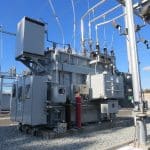The immense significance of exercise cannot be overstated. However, beyond the obvious physical benefits, numerous studies have shed light on the role that exercise plays in bolstering cognitive function. Yes, your routine fitness activities do contribute to your mental agility as well. Cognitive function encapsulates processes such as memory, attention, language, problem-solving, and decision-making. Pertinent meta-studies sourced from Pubmed and Crossref, as well as analysis from Google Scholar consistently provide valuable insights into the tangible effects of physical activity on these cognitive processes.
Exercise and Cognitive Function
An overview of how physical activity can work wonders for the brain, this section aims to provide an initial insight into the relationship between exercise and cognitive function.
Sujet a lire : The role of physical activity in healthy aging
Engaging in regular physical activity has been shown to have numerous benefits on the brain. Research suggests that exercise, regardless of its form, can improve cognitive functions such as memory and attention. This is primarily due to increased blood flow to the brain, which encourages the growth and development of neurons. Notably, exercise has been found to be particularly beneficial for older adults, where it can help maintain cognitive health and potentially delay the onset of cognitive decline.
The Connection Between Physical Activity and Brain Health
Diving deeper into how physical activity influences brain health, this section will explore the physiological changes that occur in the brain during exercise.
A découvrir également : Effective strategies for healthy aging
Physical activity stimulates the release of certain chemicals in the brain that promote neural health, enhance cognitive flexibility, and improve memory. One of these chemicals is a protein called Brain-Derived Neurotrophic Factor (BDNF), which supports the growth of new neurons and strengthens existing ones. Regular exercise also reduces inflammation and insulin resistance, both of which can contribute to cognitive decline when left unchecked.
The Impact of Exercise on Memory
Specifically delving into memory functionality, this part of the article will discuss how exercise can enhance memory performance.
Memory is one of the cognitive functions significantly improved by exercise. This improvement is particularly evident in older adults. Studies have found that regular physical activity increases the size of the hippocampus, an area of the brain responsible for memory and learning. This growth, in turn, leads to improved performance on memory tests. Regular physical activity can also protect against age-related memory loss and cognitive decline.
Exercise and Cognition in Older Adults
Focusing on the older demographic, this section will detail the particular benefits exercise offers to the cognitive function of older adults.
Aging typically brings with it a decline in cognitive function. However, regular physical activity can help maintain and even improve cognition in older adults. Research has shown that exercise can reduce the risk of developing cognitive impairments like dementia and Alzheimer’s disease. It also aids in maintaining mental agility, supporting memory function, and improving overall brain health.
Analysing the Effects of Different Types of Exercise on Cognitive Function
Examining the different types of exercise, this section will delve into whether certain forms of exercise yield more significant cognitive benefits.
While all types of exercise can benefit cognitive function, there is evidence to suggest that some forms may be more beneficial than others. Aerobic exercise, for instance, has been associated with a greater increase in the size of the hippocampus than resistance training. Similarly, mind-body exercises like yoga and tai chi have also been found to have positive effects on cognitive function, particularly in areas of attention and memory.
The key takeaway from this analysis is that exercise, in its many forms, has proven to be a potent tool for enhancing cognitive function. From boosting memory to improving overall brain health, physical activity serves as an essential cog in the wheel of cognitive well-being. Therefore, it’s highly recommended to incorporate regular physical activity into your daily routine, irrespective of your age.
The Influence of Aerobic Exercise on Executive Functions
This section will delve into how aerobic exercise impacts executive functions, a set of cognitive processes needed for the cognitive control of behavior, decision-making, and adaptability.
According to a systematic review of research on Google Scholar, aerobic exercise significantly enhances executive function in both children and older adults. These functions include cognitive flexibility, working memory, inhibitory control, attention, and problem-solving. Aerobic exercises, such as jogging, swimming, or cycling, trigger a cascade of events leading to a surge of blood flow to the prefrontal cortex, responsible for executive functions.
This increased blood flow results in enhanced neurogenesis, neuronal plasticity, and neurotrophic factor expression, which contribute to improved executive functions. Additionally, aerobic exercise reduces inflammation and oxidative stress, which can impair cognitive function. Aerobic fitness also promotes the growth and development of the prefrontal cortex, which is crucial for maintaining cognitive functioning, especially during aging.
Moreover, a meta-analysis sourced from Pubmed suggests that regular aerobic exercise could delay or even reverse age-related cognitive decline, specifically in executive functions. It was found that older adults who engage in regular aerobic physical activity have lower rates of cognitive impairment and a decreased risk of developing neurodegenerative diseases.
Cross-Sectional Studies on Exercise-Induced Cognitive Performance
This section will discuss cross-sectional studies that have explored the exercise-induced enhancements in cognitive performance.
Cross-sectional studies, as referenced on Crossref, have consistently shown that physical exercise, including both aerobic and resistance training, positively impacts cognitive performance. These studies highlight the exercise cognition relationship, demonstrating that those who are physically active often outperform their less active counterparts in various cognitive tasks.
One such study focused on how resistance training affects cognitive functioning in older adults. The results indicated that participants who undertook a regular resistance training program demonstrated a significant improvement in cognitive performance, particularly in tasks requiring executive function and memory.
These studies collectively underscore the cognitive benefits of physical exercise, emphasizing the importance of maintaining a lifestyle that includes regular physical activity. Given the compelling body of evidence, it is vital to encourage physical activity across all age groups, but particularly among older adults, to reap its cognitive benefits.
Conclusion
The role of exercise in enhancing cognitive function is undeniably significant. From bolstering memory to improving executive functions, physical activity proves to be a critical factor in supporting cognitive health and performance. The wealth of research, including meta-studies, cross-sectional studies, and data from Google Scholar, solidifies this correlation, demonstrating that exercise not only benefits physical health but also acts as a catalyst for cognitive well-being.
Particularly in older adults, regular physical activity can reduce the risk of cognitive decline and cognitive impairment, supporting mental agility and overall brain health. It’s also worth noting the relative benefits of different types of exercises. While all forms of physical activity contribute positively to cognitive functioning, aerobic exercises may yield more significant benefits, specifically in terms of executive function and memory.
In conclusion, incorporating regular physical activity into daily routines is a potent strategy for maintaining and enhancing cognitive function. Regardless of age, engagement in physical activity is a powerful step towards optimal cognitive health.











